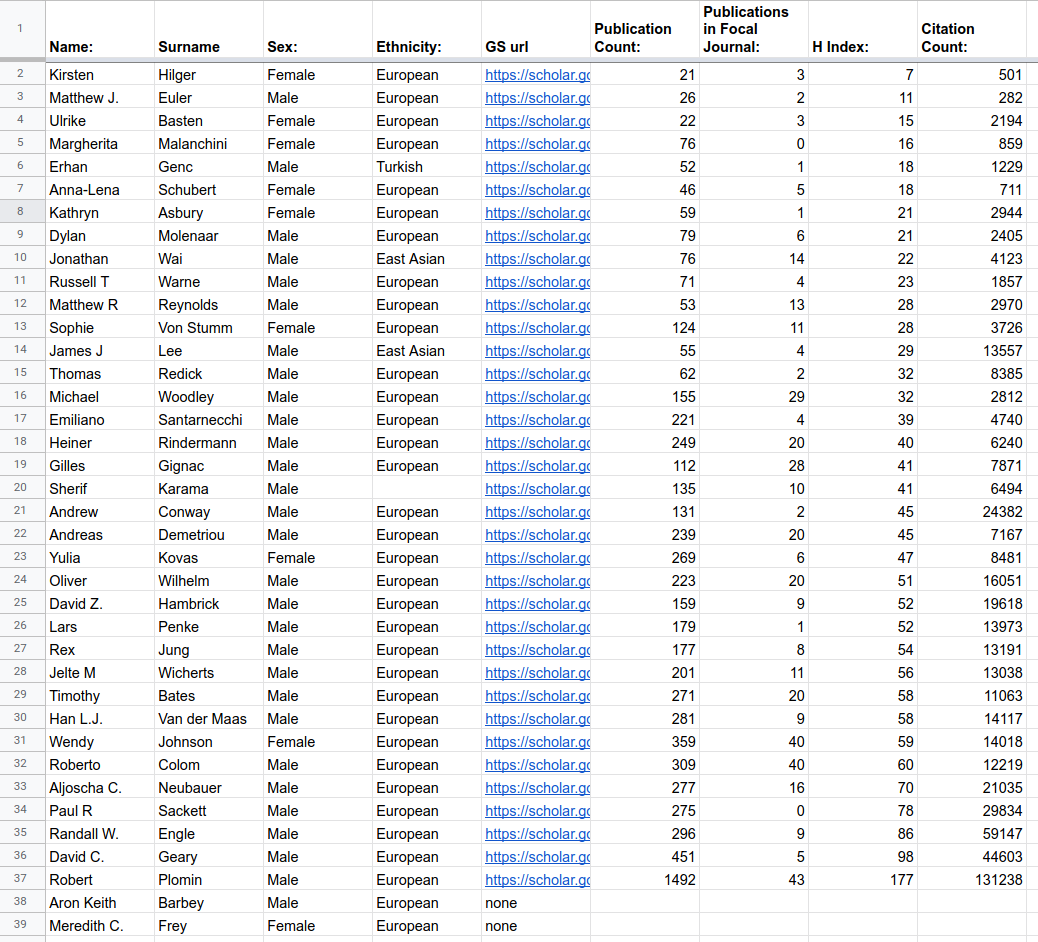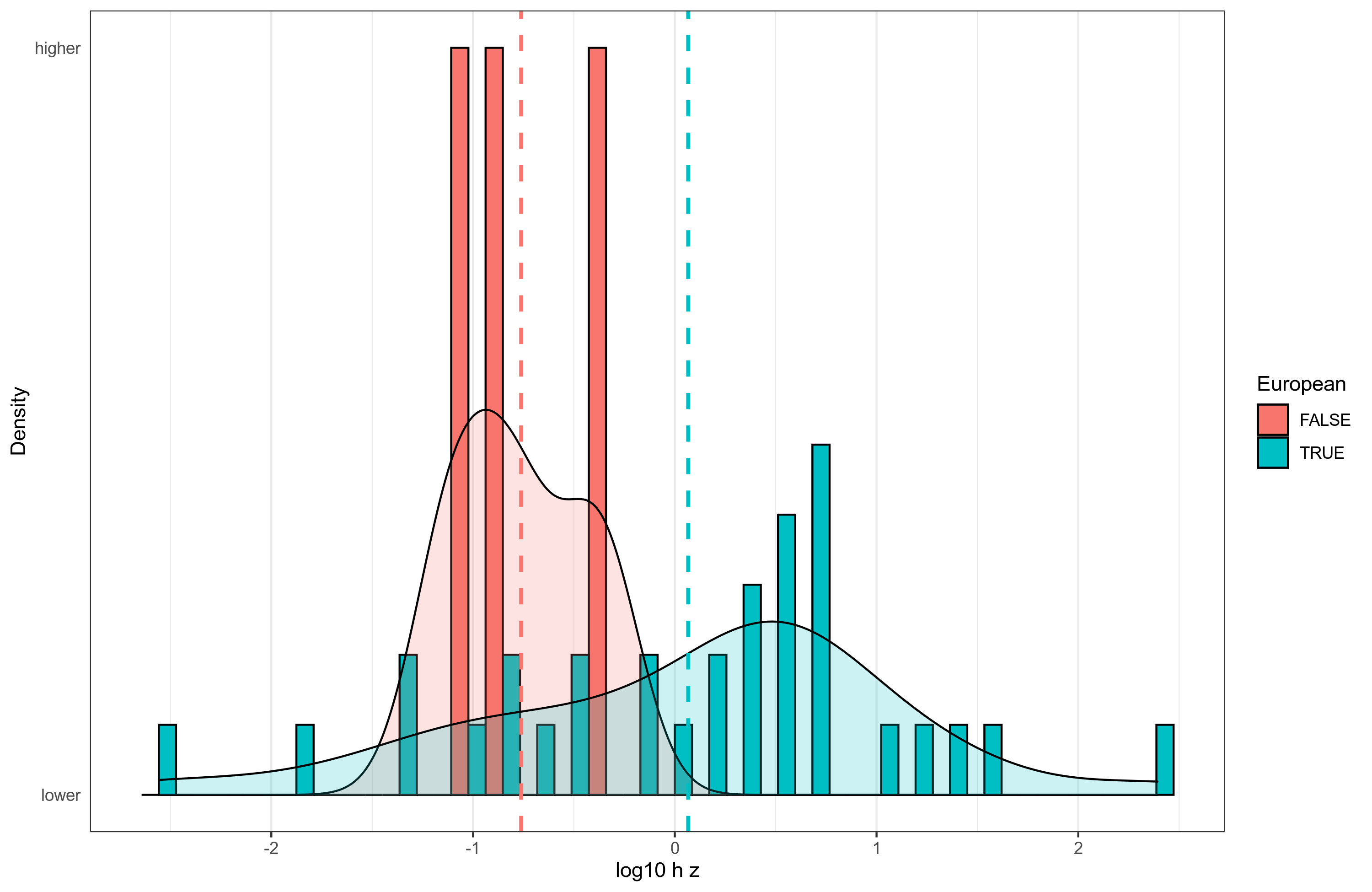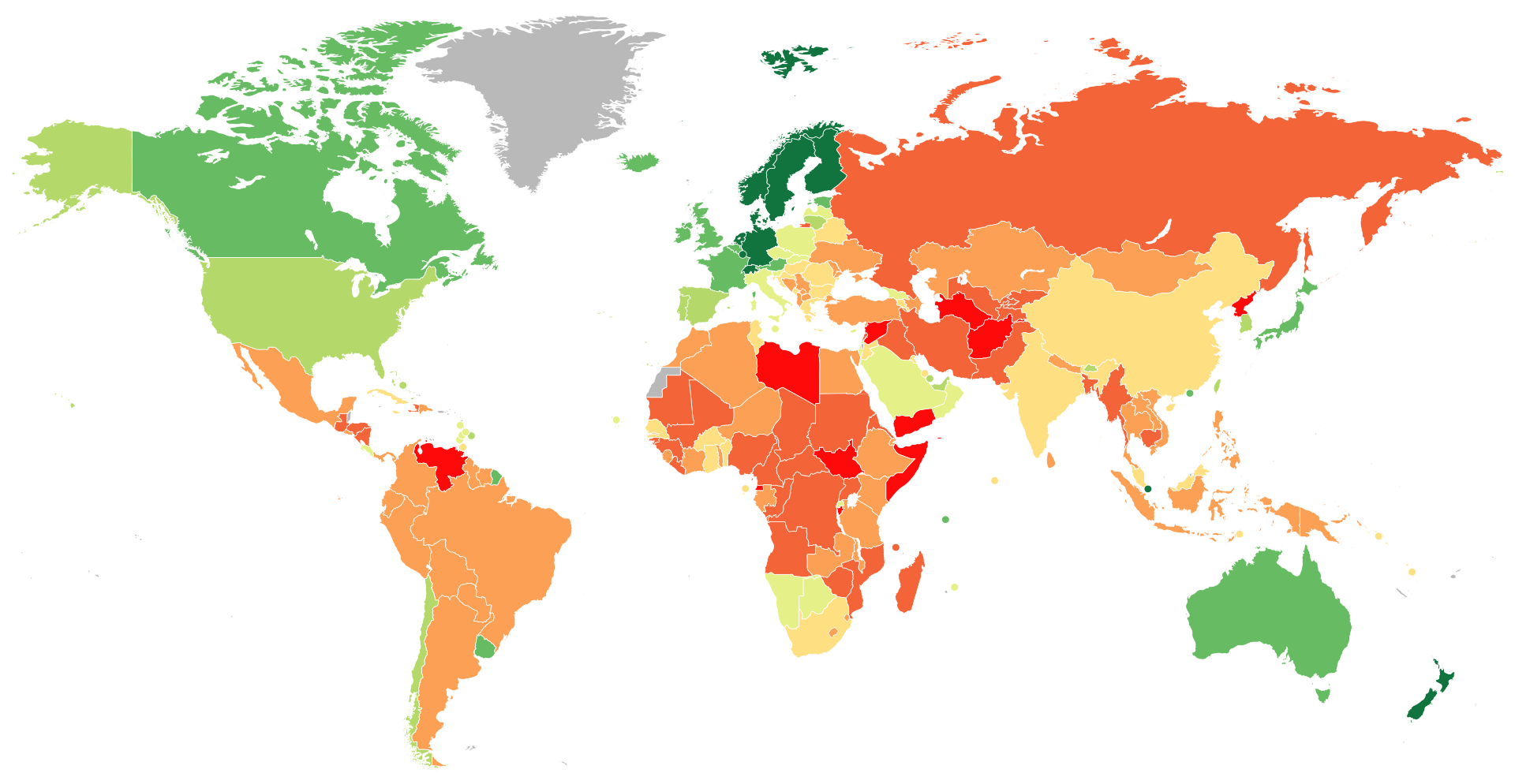We recently published a big study looking at hiring bias for editorial boards. One could argue that hiring is perhaps a bit too strong a word, as I think these positions are unpaid. However, they pay in prestige, which helps people’s careers, which lead to promotions, which eventually result in payment. We’ve got a write-up of the study over at George Francis’ blog, which you should totally subscribe to. I will also be making a video summary of this paper, as usual, so stay tuned for that. Here’s the study abstract:
The editorial boards of academic journals overrepresent men, even above their proportion in university faculties. We test whether this sex disparity is caused by anti-female bias, supposing that anti-female discrimination means women must have a higher research output than men to overcome bias against them. We collect a dataset of the research output and sex of 4,319 academics on the editorials boards of 120 journals within four social science disciplines: Anthropology, Psychology, Political Science and Economics. Using a transformation of the h-index as our indicator of research output, we find male research output to be 0.35 standard deviations (p < 0.001) above female research output. However, the gap falls to 0.13 standard deviations (p < 0.001) when years publishing is controlled for. Our results are replicated with alternative dependent variables and using robust regression. We followed up our research with a survey of 231 academics, asking for their attitudes towards discrimination in hiring to editorial boards. Although two-thirds of academics supported no bias, for every 1 academic who supported discrimination in favour of men, 11 supported discrimination in favour of women. Our results were consistent with the hypothesis that academics and journal editors are biased in favour of women, rather than against women.
Our study included 120 journals, but did not actually include the prestige journal of my own primary field, Intelligence, an Elsevier journal founded by Douglas Detterman back in 1977 to provide a friendly outlet for intelligence research. The Wokes have been gunning it recently, as of course, they hate all intelligence research and wish to suppress it (also true for Soviets and Nazis). That’s why the Wikipedia page is now full of hit piece information from loltier outlets. Anyway, so I decided to look at whether there is also evidence of discriminatory hiring for the editorial board at Intelligence. Here’s the spreadsheet with the metrics for each editorial board member. In a picture:
You can probably glance at the results since I sorted the data by H index. In the study we used the standardized log10 transformation of H, so let’s use the same here. Two plots:
Women’s average is clearly below men’s. What about Europeans vs. non-Europeans?
With apologies to Sherif Karama, I didn’t know what to code you as. But with that caveat, Europeans are higher performing than non-Europeans. But are these differences beyond chance levels? Let’s check the model results:
There’s 3 models. The first has just sex, the second just ethnicity (European vs. not), and the last has both. Judging by the R2’s, adding both is clearly necessary, and results in a model with p = .002 for women, and p = .045 for non-Europeans. Since I know there was no p-hacking, this p value can be trusted in this case, but it is not that convincing. The gap sizes are interpretable pretty much as Cohen’s d, so the gaps are quite substantial, a bit more than 1 standard deviation superiority observed for men/Europeans. The conclusion seems to be that recruitment for the Intelligence journal’s editorial board has bias in favor of women and perhaps against Europeans. This is despite the board currently being 76% male and 90% European. In theory one could check the board membership over time to see if this bias was initiated by former editor Douglas Detterman or by current editor Richard Haier. One might even be tempted to not blame them too much, as clearly Elsevier is breathing down their necks to enforce the Woke dogmas of ‘men bad, Europeans bad’, and the results would have looked a lot worse with more Woke editors. Still I feel compelled to share the results. I reckon this will hurt my publication chances there, but I have a good defense: Danes are inherently against corruption, and affirmative action is a corruption of scientific meritocracy.




